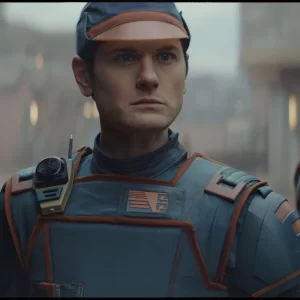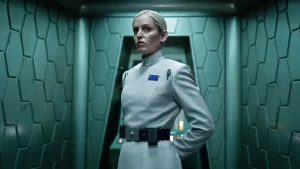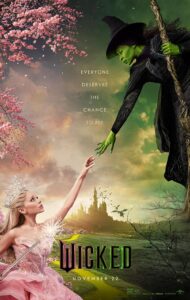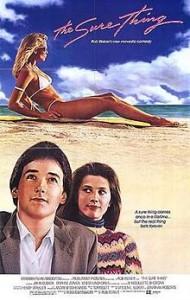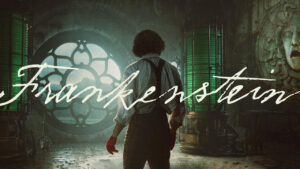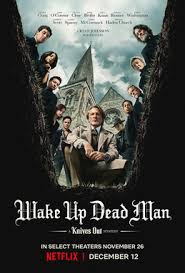.
Antagonists and Villains are tricky characters to craft. Make them too simple in their motivations and action and they become cartoonish targets, forgettable and easily swept aside by the protagonists. Develop them too well and they become so sympathetic as to displace the actual protagonists as read and audience identification grows. A careful balance between evil goals and representing their full humanity is an ideal that is so rarely achieved.
But achieved it was with Andor’s Syril Karn and Dedra Meero, agents of Star Wars’ dread Galactic Empire, lethal opponents to the protagonists, but fully realized and capable human beings trapped by circumstance and their environments.
Syril Karn (Kyle Soller) begins the series as midgrade police officer working for corporate
security, desperate to prove himself and with a fierce passion for law and order. Syril gives no indication that he has ever given any thought to the politics of the empire. Syril has a much more grounded view of life: there are rules and they are the only thing that keeps the chaos at bay. Rules must be enforced and rule breakers must be dragged into the light and subjected to the legal system for correction. His rigid view of the law and justice sets him on a course for tragedy when he cannot accept his superior’s plan to sweep the murder of two fellow corporate cops under the rug. Refusing to participate in a cover-up that would allow a lawbreaker, a murderer, to escape justice, Syril ignites a series of events that lead to riots, the Empire displacing the corporate security, and his collision with Dedra Meero.
Dedra Meero (Denise Gough), a sector chief for the feared Imperial Security Bureau, ISB, has an
equally rigid but more political worldview than Syril. Taken from her criminal parent and raised in an Imperial ‘KinderBloc,’ Dedra is a true believer in the Empire. For her, it is not law that brings order to the galaxy but power and the Empire’s power must be unquestioned or there will be chaos. Laws and rules are, for Dedra, permeable, but only insofar as rule breaking advances and protects the Empire’s power to provide stability, peace, and security. Frustrated by a bureaucracy which keeps sector heads and Imperial departments quarreling and warring for resources, Dedra violates rules and protocols pursuing a growing rebellion that others either cannot or will not see. Cold, competent, ruthless, and intelligent, Dedra Meero represents the Empire’s best bet for killing the Rebel Alliance before it even forms beyond the odd terrorist attack or heist.
By the second season this pair have formed both a romantic and professional union. We aren’t shown the courtship, but with the series time jumps we are presented with the couple living together in the imperial capital. When Dedra puts Syril’s overbearing mother in her place, establishing the firm boundaries required to protect her partner, it is clear that Dedra truly cares for Syril. Later Dedra pulls Syril into an intelligence operation that when he learns its true scope and purpose rattles his steadfast resolve, providing their relationship’s tragic conclusion.
Syril isn’t an evil man, he’s a man with solid understandable belief in law and order, but who by temperament doesn’t look at the hand that wields the law for its own self-interested purposes. Dedra, unbothered by both genocide and torture, is evil. She engages in torture and terrorism, putting aside what qualms remain within her withered conscience to advance a system whose true nature is revealed with the annihilation of the Ghor. Her desire for order at any price finds that even genocide is not too high a price to pay. This devotion to power brings the eventual conflict which shatters Dedra’s relationship with Syril and his rigid moral code.
Andor presents the audience with Imperials that are true characters, that are people with complex inner lives and for whom the Empire is not a setting but an environment that shaped them and that they shape. This is writing at its best.
